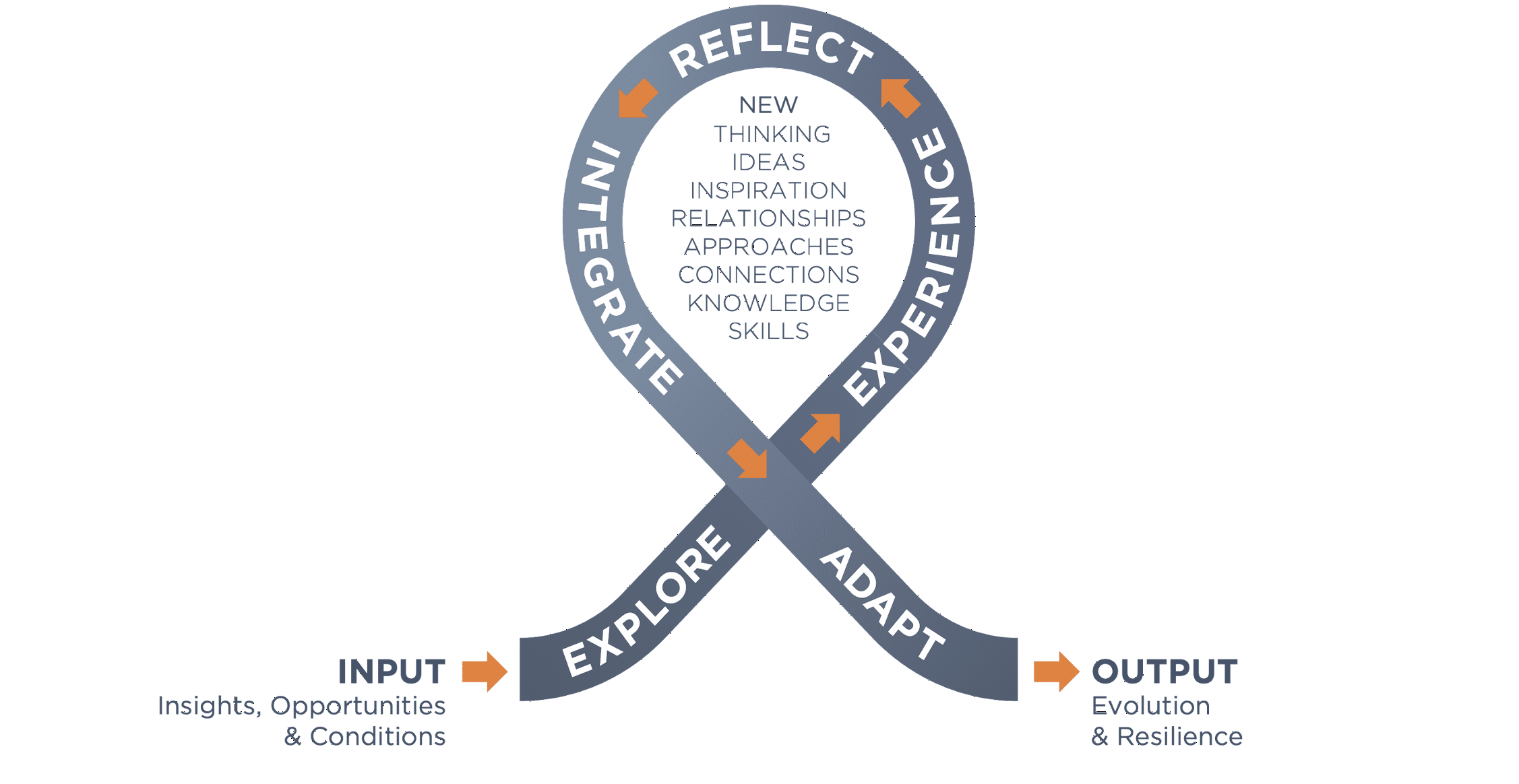The global food system is broken and no longer serves people or planet. A paradigm shift is required to transform our system and no single entity (company, government, fund, etc.) can solve the existential challenges that we face in isolation.
Working together to solve some of our greatest challenges is the only way to ensure we have a viable food system and planet to support all.
This is the foundation and Purpose of MISTA: To accelerate the transformation of the global food system to meet the needs of the future… an abundant future that nourishes and delights people and planet.
The paradigm shift will require us to focus on nutrition, taste, affordability, and a massive reduction of the footprint on our planet, while embodying a systemic approach to transformation and innovation.
A systemic approach to transformational innovation requires us to explore the intersections of our food system: The nodes between nutrition, taste, affordability, footprint, and tools such as biotransformation and AI.
At MISTA, we practice Regenerative Innovation (figure 1), every day, across and between these nodes to identify opportunities, potentials, and possibilities that will accelerate the evolution of the food system.
The first phase of Regenerative Innovation requires a willingness and capability to explore the unknown, the emerging spaces between the nodes, technologies, and systems. This exploration MUST include spaces that are outside of your expertise – widen the aperture.
The second phase of Regenerative Innovation requires access to new experiences. The artist Michael Franti has a great line in his song, Say Hey, and that is: ‘It seems like everywhere I go, the more I see the less I know’… Meaning that seeing or experiencing something new, changes your perspective and what you thought was ‘known’ may not be the case. Innovation REQUIRES us to be comfortable in the UNKNOWN. If you only experience the same thing (same environment, same people, same thoughts) you are living in the known, or the past. Experiencing the unknown allows us to move beyond the known and into potential new futures. Experiencing the unknown allows us to move into the liminal space (the uncertain transition between where you’ve been and where you’re going, physically, mentally, or metaphorically). This is the fundamental principle of innovation: Experience Matters.
The third phase of Regenerative Innovation requires us to withhold judgment (‘won’t work’, ‘seen that’, ‘done that’..) and reflect on the experience as it relates to the current environment. New experiences are very likely to upend what was thought to be known or question decisions taken, even yesterday. It is the role of an innovation practitioner to question everything, always. It is the only way we can evolve from the known past to the unknown future. This is a challenge for larger corporations that are designed to execute strategies, amidst immutable constructs. This is the basis for the innovator’s dilemma. MISTA is designed to help innovation practitioners reflect on new experiences ‘outside the castle’, alongside other entities to see greater possibilities.
The fourth phase of Regenerative Innovation requires us to integrate the experiences and reflections from the liminal space to create new futures. This is the art of translating foresight into new potentials. Integrations can occur within four dimensions:
- Self – how do these experiences and reflections impact my understanding of my place in the world and the food system? How can I evolve?
- Team – how do these experiences and reflections impact the goals and objectives of my team? How can we evolve the team?
- Company – how do these experiences and reflections impact the mission and purpose of my company? How can we evolve the company?
- System – how do these experiences and reflections impact the overall food system and how my company, team and self can evolve the food system?
Integrations can also occur across multiple timeframes. Horizon 1, 2 and 3.
The integration may be immediate (H1) or may not fully emerge until additional experiences (Regenerative Innovation cycles) have been completed (H2 or H3). MISTA helps organizations and the system ‘hold’ these integrations to enable Innovation Practitioners to connect dots across dimensions and time.
Evolution of people, teams and companies is not possible without continuously moving through Regenerative Innovation cycles. Innovation is not possible without continuously evolving and adapting to the changing conditions and opportunities. This is the basis of our definition of innovation: Creating mindset, culture, and ways of working that enable a system (company or ecosystem) to continuously evolve and adapt to changing conditions and opportunities, manifesting in the creation of new futures.
Moving continuously through the Regenerative Innovation cycle translates into compounding innovation, meaning true innovation is built over time, with each cycle building the foundation for the next iteration. The bigger the base or foundation, the higher the yield.
If your innovation strategy is only focused on the outcome and not building innovation mindset, culture, and ways of working, you will likely fail in building the foundation it will require to even sustain, let alone regenerate your innovation wisdom and investments.
Calculating the value of Regenerative Innovation
Compounding Innovation – The value of your current learnings PLUS the accumulated learnings (wisdom) from previous periods. If your team or organization does not have ways to invest, save, and maintain the value of each Regenerative Innovation cycle, you will over-spend on innovation and never attain the progress of those who do.
Compounding innovation is very similar to compounding interest, if you invest $5k, at the age of 25, for ten years and then stop, letting the investment compound for the next 40 years, you will have more money (value) than someone investing $5k per year at the age of 35 and continuing to invest every year for 40 years.
In a previous paper, we discuss Return on Innovation (ROI) – the value of your investment on innovation to deliver a greater potential for evolution.
Based on the Regenerative Innovation framework –
Return on Innovation (ROI) = Experiences * Reflections * Integrations = Potential for Evolution
Increasing the magnitude of ALL 3 variables maximizes the ROI and potential for evolution. If any variable is zero or close to it, the potential for evolution is near zero, increasing the chances for displaceability.
Is your organization optimized to regenerate and compound innovation?
MISTA’s Mission is to deliver transformational experiences to image beyond ableness and co-evolve Members toward non-displaceability.
The greatest potential to become non-displaceable (your highest-level value return), comes from the capabilities of your people, teams, and company to see new opportunities beyond what is known; to image beyond ableness. Exploring the unknown, within a nodal network (MISTA) that is system-wide and technology deep, will enable people, teams, and companies to experience new possibilities and opportunities. These experiences are what enable innovation practitioners to create new connections, new potentials, and ultimately new futures.
Based on observations, most organizations in the food system focus their innovation activities on the outcome (product) versus the experience, creating KPI’s that reward short-term delivery of a tangible product that is known, versus building capabilities to navigate the unknown.
Organizations commonly focus on delivering objectives based on knowledge from the past. In other words, predicting what is important in the future that is based on the past. As such, organizations ARE operating in the past. People and teams are rewarded for their ability to deliver against strategies and objectives set in the past, even when new experiences and reflections may reveal a better alternative path.
Using frameworks to overcome the constructs of the past.
One of the greatest innovation challenges for large organizations is overcoming the forces of old constructs, old paradigms, and inertia of the past that inhibit people, teams, and companies from continuously adapting and evolving to create new futures. MISTA exists to help people, teams, and companies leverage new frameworks to overcome the inertia of the past and image beyond the known (old constructs and paradigms).
Specifically, MISTA powers your innovation engine to help your company, and the nodal network you depend on, to evolve (From -> To):
From Linear -> To Regenerative
From Known -> To Unknown
From the Past -> To the Future
From Knowledge -> To Wisdom
From One Dimension -> To Multidimensional
From Value Return Paradigm -> To Regenerative Paradigm
From Product Innovation -> To Network Innovation
From Displaceable -> To Non-Displaceable
MISTA exists to help people, teams, and companies create mindset, culture, and ways of working that enable a system (company or ecosystem) to continuously evolve and adapt to changing conditions and opportunities, manifesting in the creation of new futures.
Seizing the experiences of today will enable you to evolve for tomorrow. Is your organization leading the evolution?



